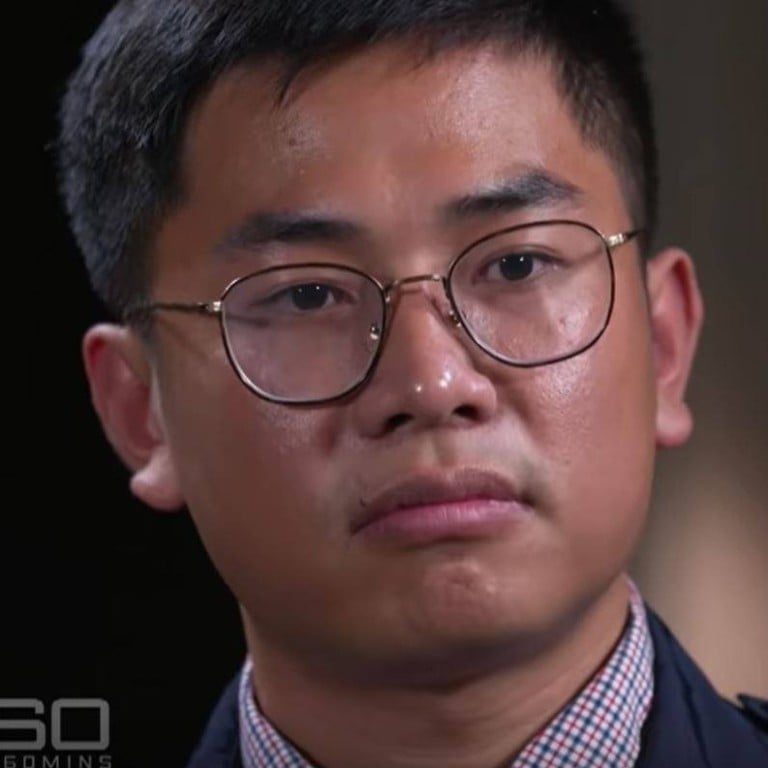
Chinese ‘spy’ who claimed he undermined Hong Kong protest movement facing deportation from Australia over fraud claims
- An immigration tribunal expresses grave doubts over Wang Liqiang’s claims about an espionage network because of his fraudulent activities
- Wang claimed to have been active in Hong Kong and Taiwan – but the island’s authorities dropped all charges against the people he accused
William Wang Liqiang’s claims had led to the arrest of two Hong Kong executives in Taiwan before prosecutors found his claims to be baseless and dropped the charges.
The 32-year-old had requested political asylum in Australia, but the country’s Administrative Appeals Tribunal ruled that he had committed “serious fraud against an Australian citizen” Filip Shu Xin.
The tribunal questioned how it could “safely find that [Wang] was engaged in espionage activities” given his fraudulent activities. The home affairs department rejected his asylum application, meaning that he faces deportation back to mainland China, where he is also charged with fraud.
Wang’s former business associate Shu sued him for A$3 million (US$2 million) in 2020, leading to Wang’s assets being frozen by the New South Wales Supreme Court.
Shu claimed that Wang had persuaded him in 2018 to invest millions in a business which transports luxury cars from Germany to China, while offering a property in Shanghai, which he said he owned with his wife, as security.
Anti-corruption chief at China spy agency admits taking US$33 million in bribes
The Shanghai police informed Shu in early 2019 that the couple “are not and never were the owners of the Shanghai property” and documents purporting to show their ownership were “fraudulent”. Shu said the couple had “failed, neglected and refused” to pay him the money he owed.
Wang left China months later and began claiming he had been a spy.
In an interview with the Australian television programme 60 Minutes, Wang claimed that he had been a secret Chinese operative for five years and had met China’s spy chief in Australia, who he said worked in the energy sector.
He has made various claims against Beijing to media outlets and provided a sworn statement outlining Beijing’s alleged covert operations to the Australian Security Intelligence Organisation (ASIO).
ABC also reported, citing government sources, that Wang claimed that Beijing had ordered overseas assassinations, including in Australia.
China at the time called Wang’s allegations “absurd” and stated that he was a convicted fraudster who left mainland China using bogus travel documents. Chinese state media also published a video that appeared to show him admitting fraud during a 2016 trial.
All the individuals in Taiwan who Wang claimed were his associates or handlers were cleared after an investigation by the island’s authorities found no evidence to support his claims that a “spy network” existed.
Wong Yen-ching, former deputy director of Taiwan’s Military Intelligence Bureau, described his allegations as “falsified” and “an attempt to seek political asylum”.
Wang gave the Australian authorities the supposed identities of Beijing’s senior military intelligence officers in Hong Kong along with details of how they funded and conducted operations in the city, as well as in Taiwan and Australia.
Senior Chinese spy agency official sacked in corruption probe
“As I grew older and my worldview changed, I gradually realised the damage that the [Chinese Communist Party]’s authoritarianism was doing to democracy and human rights around the world,” Wang said at the time, adding that he “will be dead” if he returns home.
Wang, who has a tourist visa for Australia, is living in an undisclosed location in Sydney with his wife, who is currently studying, and their infant son.


